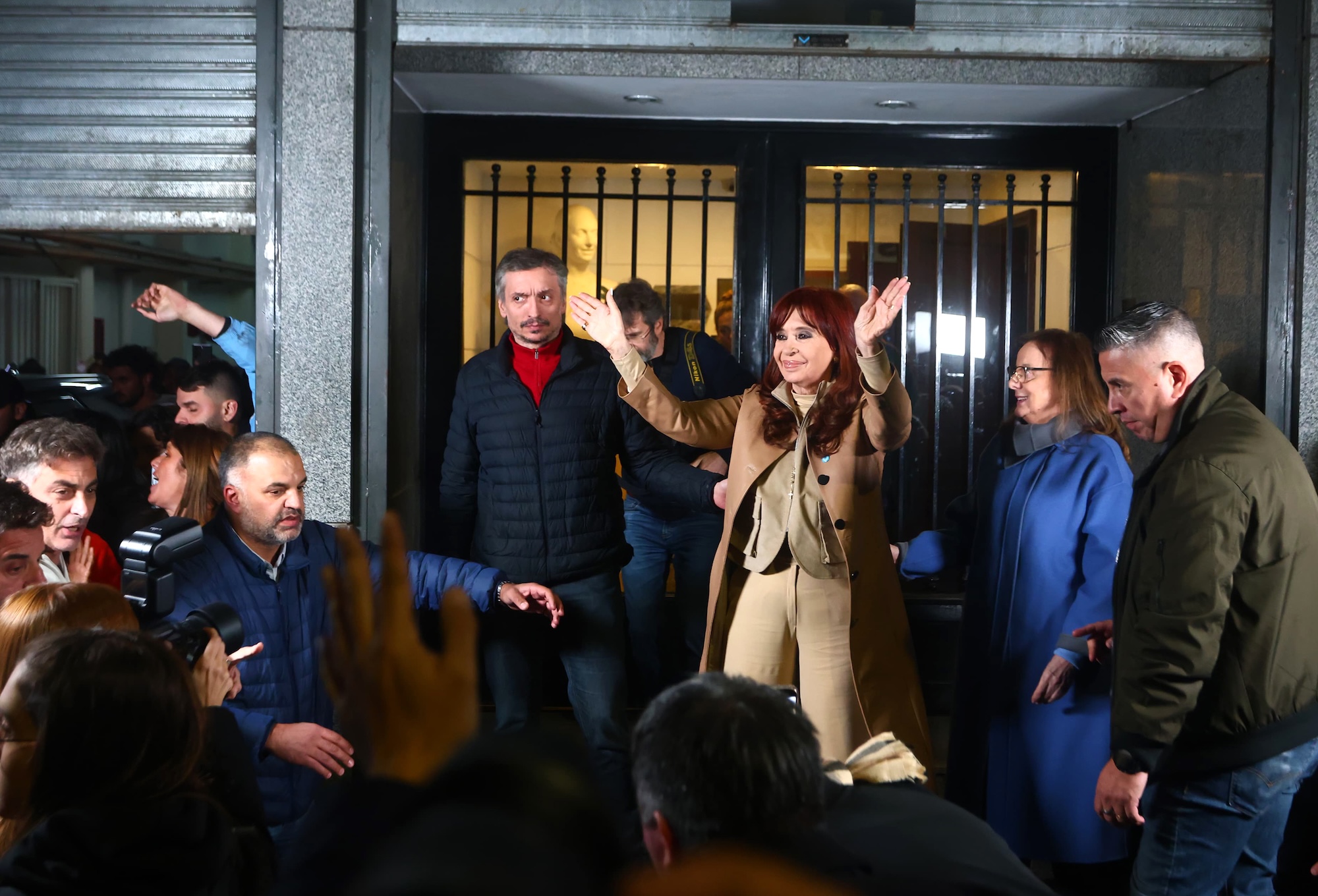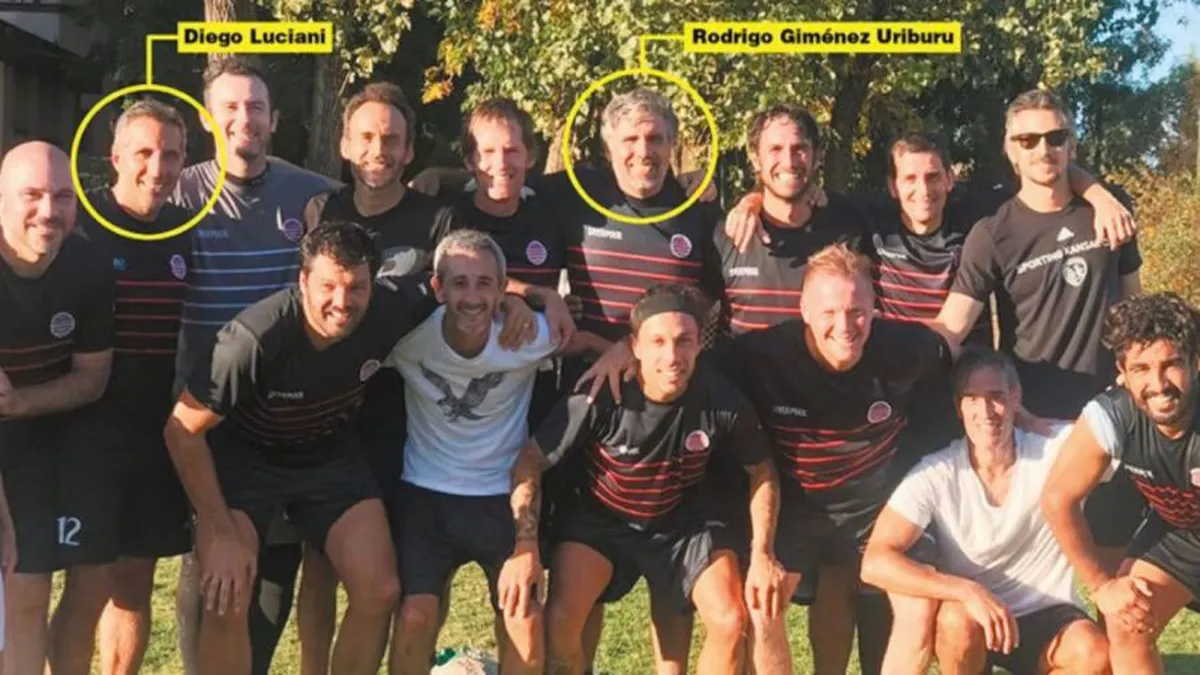Cristina, Peronism, and proscription
Marcos Salgado
The concentrated power in Argentina has once again shown what it is: power. A hegemony that goes beyond the cartelized media, which are merely the figurehead of a system that includes, most notably, total control of the country’s most important courts.
But they do not stop there. When they want or need to, they are also capable of putting a gun to the head of the country’s most important political leader, then vice president, and pulling the trigger without a bullet. Or of committing suicide to pin the blame on the same leader.
With the ruling of the three judges of Argentina’s tiny Supreme Court, it has once again become clear that the concentrated power will never forgive Cristina Fernández de Kirchner for having driven the best years for the Argentine majority, at least since Juan Domingo Perón.
Showing that it is possible to generate public income and redistribute it for the benefit of the majority, and that it is possible to govern without bowing down or agreeing to the agenda of the powerful media in one of the largest and richest countries in the world, was and is too dangerous for the elites. That is why the Clarín group has openly called in recent days for Cristina to be removed from the game as soon as possible.
And so they did, hastily, the three courtiers, who decided to reject without analysis all appeals against the scandalous conviction of other courtiers, those of the Federal Oral Court 2, who in December 2022 decided to find the then vice president and others guilty (we insist, without evidence, this is something well known and documented) in a case driven by former right-wing president Mauricio Macri.
The prosecutors and judges in the case played soccer with Macri at his country house. That did not matter to the media entente or to those who decided to believe, post-truth style, in the hegemonic narrative.
Outlawed
Now, the court’s confirmation of the sentence carries with it something perhaps more important than the six-year prison term itself, which Cristina will surely serve at her daughter’s home in the Constitución neighborhood of Buenos Aires. More important is her lifetime ban from holding public office. This has a direct consequence, hence Clarín’s haste: Cristina will not be able to run, as she had announced, in the upcoming parliamentary elections later this year.
Perhaps the former president and current chairwoman of the Justicialist Party will have to spend a few days in police custody so that the hegemonic power can get the photo and media spectacle it needs to show society that it has no qualms about displaying its power.
But sooner or later, the apartment at 1100 San José Street (a few blocks from the Clarín Group’s headquarters) will become a political pilgrimage site for leaders, senators, deputies, etc., etc. With all due respect, it will be a kind of Puerta de Hierro, the estate of Juan Domingo Perón in Madrid, where the Justicialist leader spent most of his exile until his return to the presidency in 1973.
With all due respect, of course. Comparisons in politics are often as odious as they are partial and capricious. But it is also clear that Kirchnerism plays with this liturgy. The former president herself mentioned the anniversary of the executions of José León Suárez, which took place in 1956 during the first resistance to the coup against Perón. Cristina said that the sentence against her is a political “execution.”
What is clear is that the conviction and proscription do not distance Cristina from the central place she has occupied in Argentine politics for almost two decades. What is not so clear, at least in our view, is how she will manage to maintain it, at the head of the heterogeneous Justicialist movement, which is always too diverse and has many leaders attentive to their personal projects.

Crisis
For now, the former president has decided to shield her discourse against the power that is banning her and against President Javier Milei, although without focusing on the man himself. In Argentina, everyone knows that the permanent vendetta against Cristina goes far beyond the sad caricature currently occupying the Rivadavia chair.
She warns that her arrest and disqualification will not improve the dire conditions to which Milei is subjecting the majority of Argentines.
Beyond relatively controlled inflation and a stable dollar, a review of hard economic indicators shows a desperate decline in consumption of food and essential products. No less frightening is the contraction of small and medium-sized businesses in a spiral of scarcity that is just beginning.
Until now, Argentina has emerged from such critical situations thanks to Peronism. Perhaps that is Cristina’s gamble at the head of the Justicialist Party, now banned and under house arrest. Perhaps, just perhaps, that will not be enough in the face of an extreme right wing that has already shown that it has no qualms about destroying the institutions that it once defended as its own.
Perón’s return after his banishment was the result of a long process of resistance. And times have clearly changed. How they have changed. Will it now be enough to try again in the next elections, with many familiar names but without Cristina, to bring an end to this nightmare? The leader’s appeal to her supporters in her message after the palace coup seems to point in that direction.
However, at the same time, resistance to Milei’s looting is growing, shielded by the same media that seeks to eliminate Cristina. It is a complex and difficult resistance, which must first face the brutal repression of Minister Bullrich and her security forces. But it is in the streets where, sooner or later, the power that now celebrates the success of the attack will be left without strength and without strategy. Examples abound.

